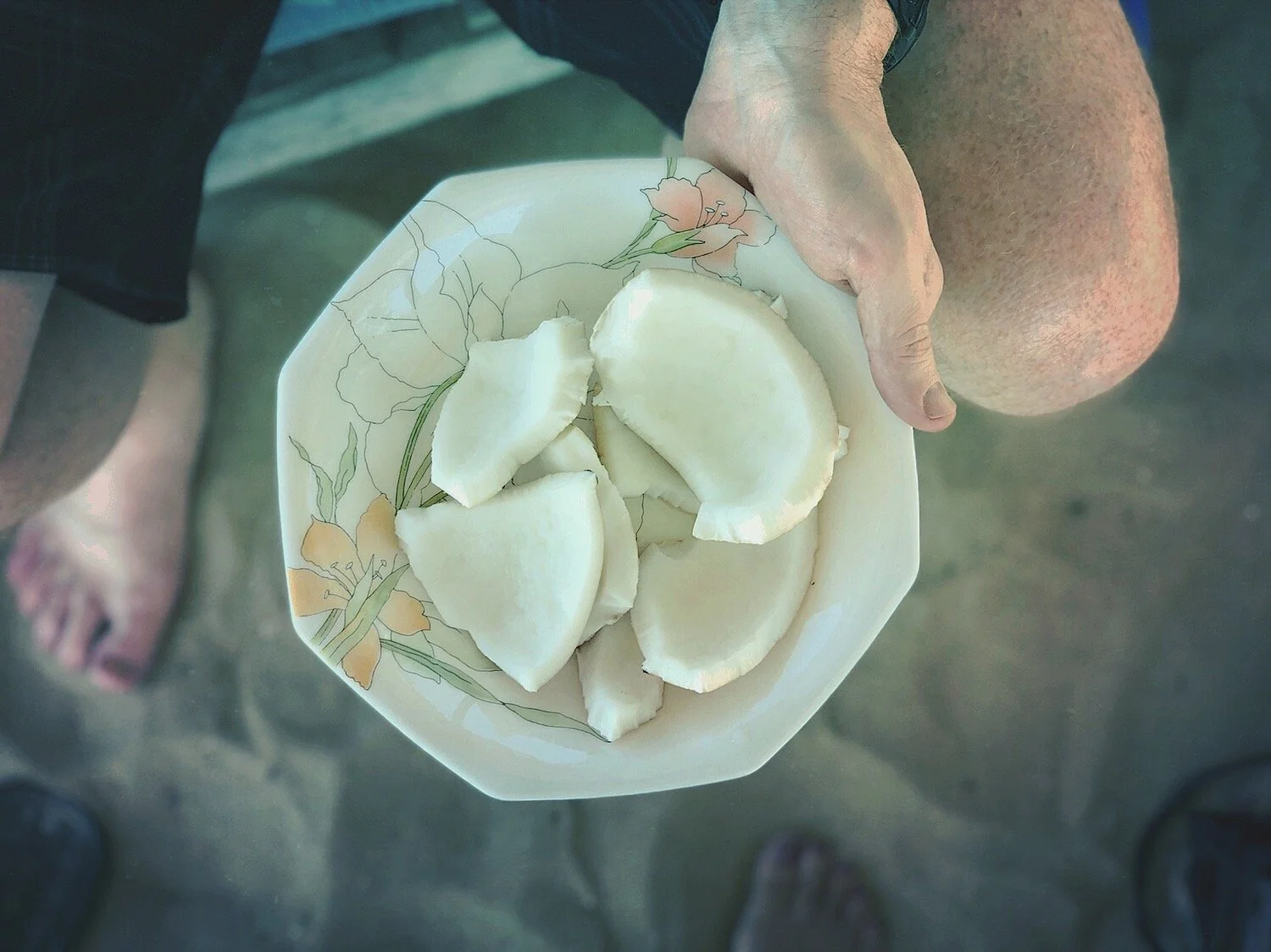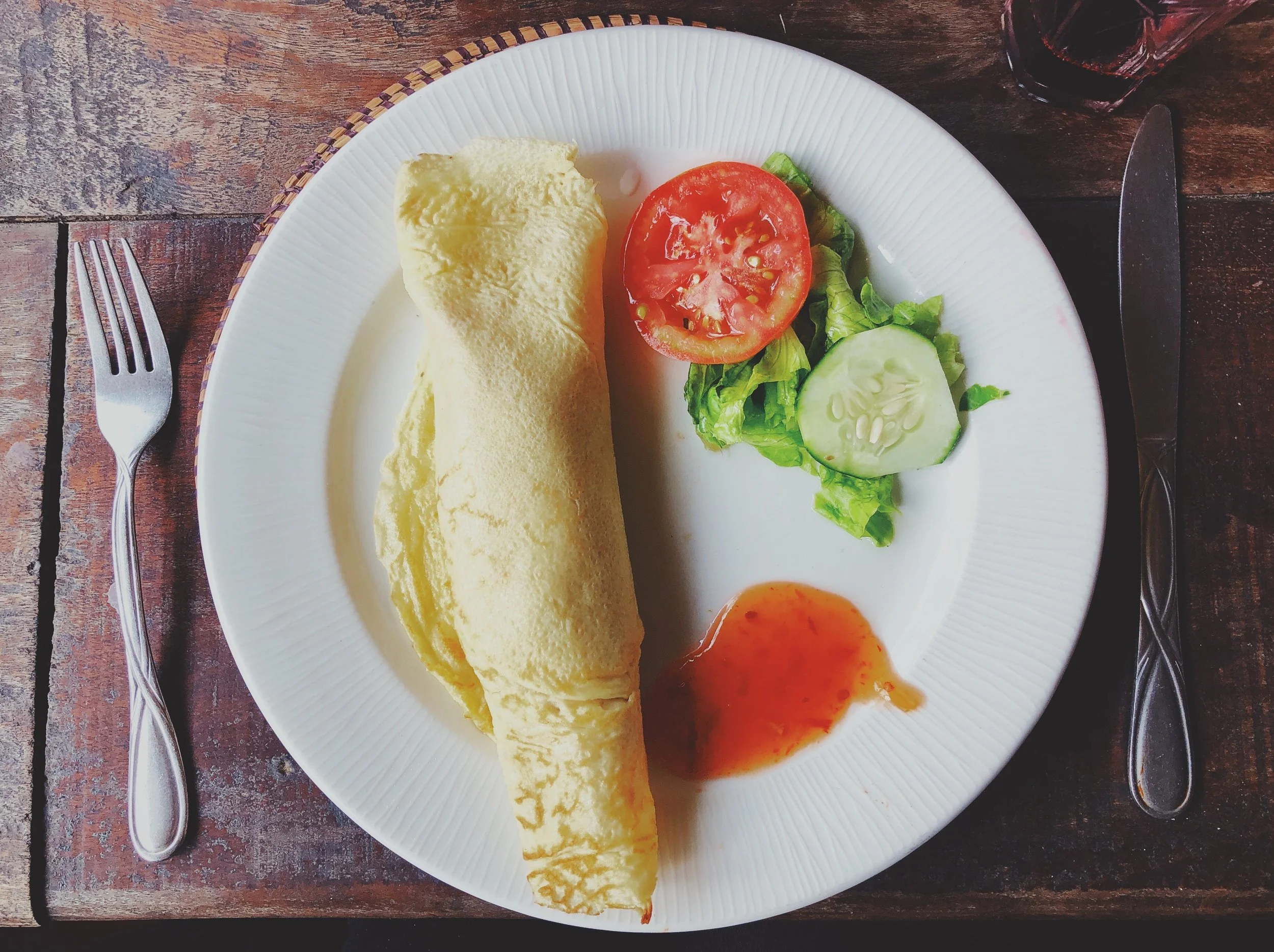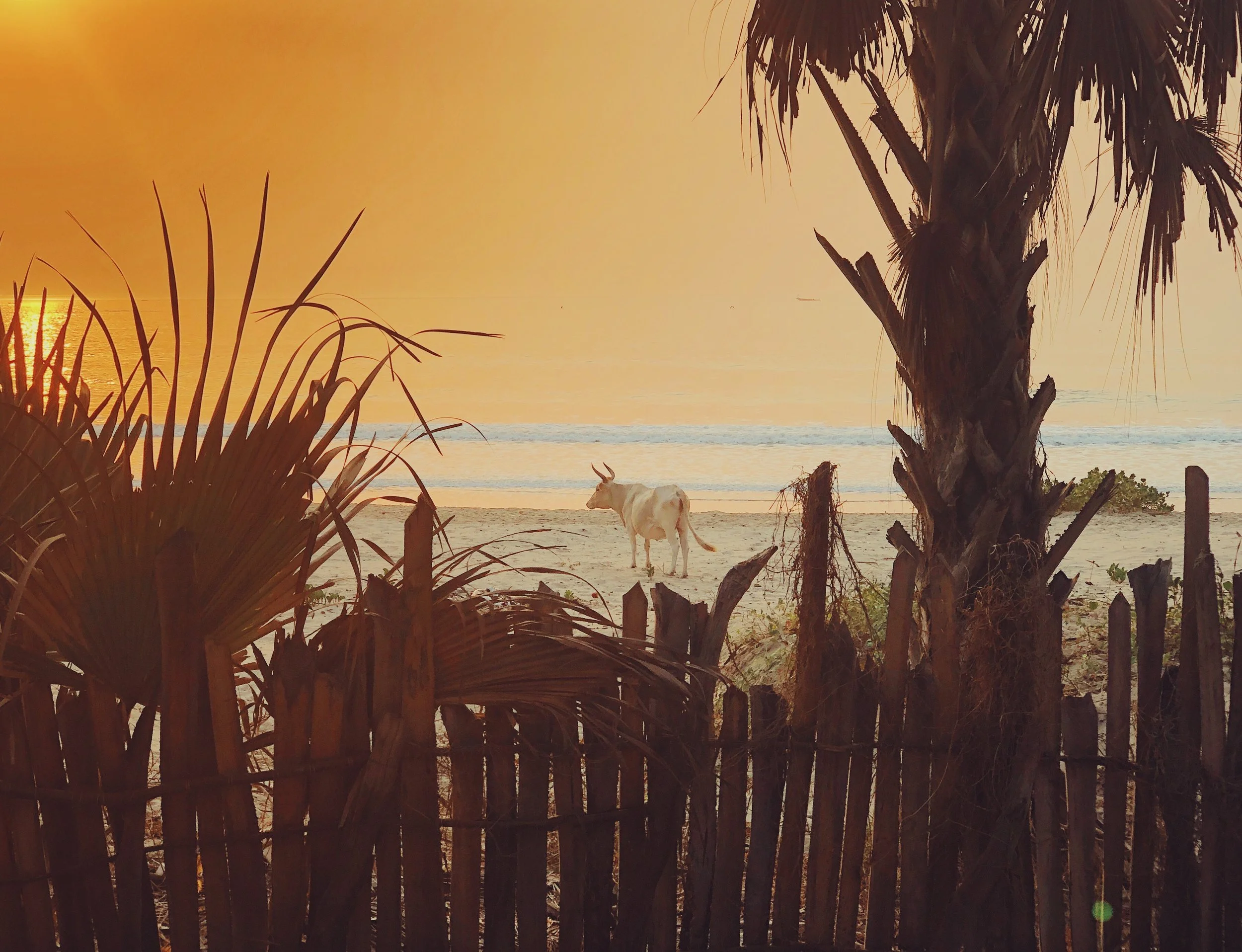CASHEWS & BEACH COWS
The next day, we slept in. Later, we wandered out into the bush and found Buba (a different Buba—a farmer) roasting cashews in a fire on the ground.
Smoke billowed where he stood, stirring the coals with a stick.
“Hallo!” He greeted us with hearty handshakes. “You are welcome in Gambia. Nice to meet you.”
He showed us the small, delicate cashews blossoms on the tree branches and told us that they would bloom in three months. This crop, the one that he was currently roasting, was the last of the season. Beyond him, his son, Suele sat on the ground with his friend, Ibrahaim, where they peeled each roasted cashew by hand.
Together we tasted the roasted cashews, plump, sweet, crunchy and delicious.
Antje asked him how much it would cost for three kilos. Farmer Buba calculated silently.
“3000 Dalasi,” he finally said. About $60 USD.
Between the four of us—Thomas, Antje, Tor, and I—we took them all.
Buba was pleased. “I will finish roasting all of them,” he told us. “And bring them to you later.”
*
When we went down to the restaurant, Ablai had a beautiful spread waiting for us—tapalappa bread (a crusty baguette of corn, rice, wheat millet, and oat), marmalade, peanut butter, hot coffee and tea. There was also papaya, bananas, and oranges.
Over breakfast, we chatted with Tomas, now much more awake, and more animated than we could have imagined. He was a photographer and entrepreneur from the isle of La Gomera, in the Canaries.
“I am making ice cream now!” He exclaimed. And proceeded to tell us about his all natural “ice saloon”, which he recently opened on La Gomera, and which was very popular already.
After breakfast, we went to the beach. The wind was billowing across fat, rolling waves. We asked Ablai for some fresh coconut and he sent Abdul up a tree to cut one down. A few moments later, he brought it to us on the beach—a cool plate of thick, white half-moons.
Abdul was a local boy who kept the eco lodge tidy. He was hardworking and serious about his job. Some days we saw him sweeping the pathways in a full dashiki, other days, he raked the sand or carried mattresses to the beach for guests. Each day, when his work was done, he dashed into the ocean, then did a series of pushups on a driftwood log.
Tor and I ran across the sunbaked beach to swim in the warm, frothy water. The sand was fine and soft. There was no murk, no seaweed, no dead fish. Only tepid, salty waves. The current tugged at our toes but was never too strong. Not like in Tulum, where the riptide can yank you off your feet and tunnel you beneath the surface before you know what is happening.
When the waves eased, I floated on my back under the West African sun and considered my tiny existence in this quadrant of the world. To the north, Serekunda and to the south, Kartong. I gazed back at the shoreline; at the stanchions of palm and coconut trees, the thick, green underbrush, the sturdy palapas over the sun beds, and the handful of bull cows wandering lazily down the beach. The scene, so spare and simple was more than beautiful. To tired, traveler eyes, it was paradise.
We stayed all day on the beach and when dusk fell, took showers before dinner. It was Ablai’s day off, and Buba was cooking. Once again, we ordered Butterfish with Dolmada. Once again, we were not disappointed. When we were full, we retreated to our room where we read until our eyes sagged down and we drifted off to a chorus of crashing waves.











